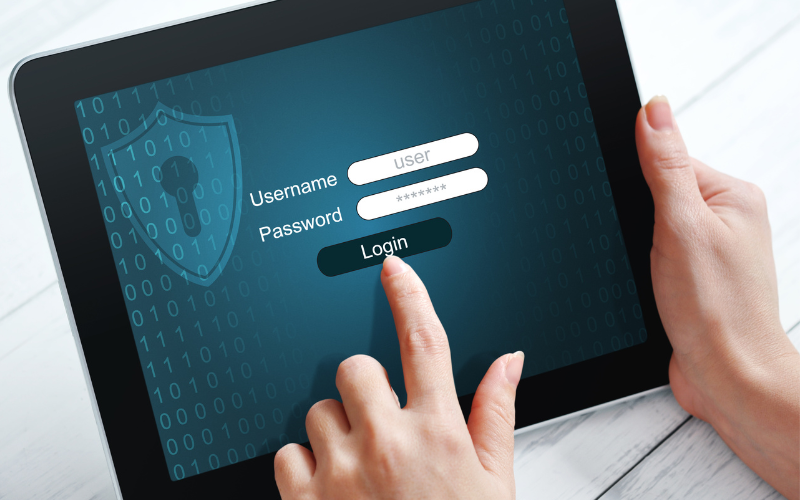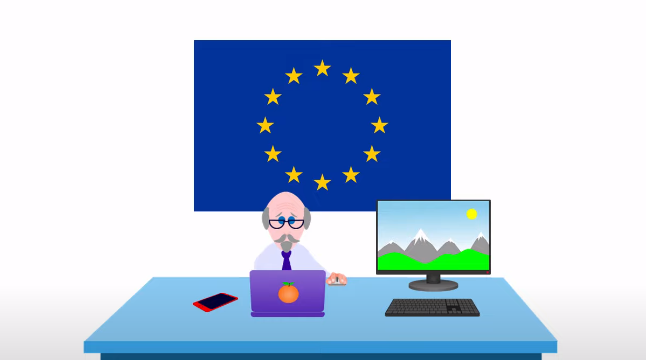Introduction
Explanation Of Personal Information In The Context Of Data Privacy
Personal information refers to any data that can be used to identify a specific individual. This may include names, addresses, phone numbers, email addresses, or even IP addresses. Personal information is often collected by organizations for various purposes such as marketing, customer service, or other legitimate reasons. However, the Data Privacy Act (DPA) regulates how this personal information should be collected, processed, and stored.
Importance Of Personal Information In Data Privacy
The importance of personal information in data privacy cannot be overstated. With the increasing use of technology and digitization of personal information, individuals are at risk of having their private details exposed or misused by unauthorized parties. This puts them at risk of identity theft and fraud.
The Data Privacy Act regulates the collection, use, and disclosure of personal information. It mandates organizations to obtain consent from individuals before collecting their personal information and ensure that it is being used for a legitimate purpose. Organizations must also take measures to protect the confidentiality and security of personal information in their custody to prevent unauthorized access or disclosure.
Understanding Personal Information in Data Privacy Act
The Data Privacy Act (DPA) was enacted in 2012 and serves as the primary law on data protection in the Philippines. The DPA aims to protect an individual’s right to privacy by regulating how personal information is collected, processed, and stored by both government agencies and private entities. Personal information includes any data that can be used to identify a person such as name, address, email address, phone number, etc.
Collection and Processing of Personal Information
Rules And Regulations For Collecting Personal Information
Under the Data Privacy Act (DPA) of 2012, entities that collect personal information must obtain consent from the individual before collecting their data. Moreover, these entities must ensure that they collect only necessary and relevant personal data and are transparent about how they will use it. Additionally, they must protect this data through appropriate security measures such as encryption or anonymization.
In cases where personal information breaches occur, entities are mandated to report these incidents to the National Privacy Commission (NPC) within 72 hours from the time they became aware of it. Failure to comply with any provision under DPA may result in imprisonment and/or fines ranging from P500,000 up to P5 million depending on the gravity of the offense committed. It is important for businesses and organizations that handle personal information regularly to be well-informed regarding these rules and regulations enforced by NPC so as not to compromise consumer privacy rights which also affect their reputation in different ways particularly those engaged in e-commerce activities where consumer trust matters most.
Lawful Basis For Processing Personal Information
Under the Data Privacy Act, processing personal information must have a lawful basis. These lawful bases include consent, the performance of a contract or service, compliance with legal obligations, protection of vital interests, public interest, and legitimate interests. Consent is one of the most common and straightforward bases for processing personal information. It requires that individuals give their explicit consent to allow their data to be processed for specific purposes.
However, consent is not always needed as some processing activities may be necessary to perform a contract or provide a service requested by an individual. Legal obligations also offer another lawful basis for processing personal information where organizations are required by law to process certain types of personal information. In cases where there is an urgent need to protect an individual’s life or health or that of others, the protection of vital interests becomes the legal basis for processing.
Furthermore, when it comes to the public interest and legitimate interests as lawful bases for processing personal information under the Data Privacy Act, it requires balancing such interests against privacy rights and freedoms before deciding whether they constitute valid grounds for collection and use of data.
Rights Of Individuals In Relation To Their Personal Information
Under the DPA, individuals have various rights concerning their personal data. These include the right to be informed about what data is being collected and how it will be used; the right to access and obtain a copy of their personal information; the right to object or withhold consent for processing their data; the right to correct any inaccurate or incomplete data; and the right to erase or block any unlawfully processed or outdated information.
Sensitive Personal Information
Definition Of Sensitive Personal Information
Sensitive personal information is a term used to describe specific types of personal data that are considered highly confidential and require special measures for protection. In the Data Privacy Act, sensitive personal information includes but is not limited to biometric data, genetic information, health records, financial and credit card details, government-issued IDs, or documents containing sensitive personal information such as social security numbers.
Special Rules And Regulations For Handling Sensitive Personal Information
Under the DPA, the processing of sensitive personal information is allowed only under certain conditions. For instance, it should be necessary for a specific purpose such as employment purposes, or when needed by a government agency authorized by law. Consent from the data subject is also required before processing sensitive personal information unless it falls under one of the exceptions provided by law.
Moreover, entities processing sensitive personal information are required to implement appropriate security measures to protect against unauthorized access or disclosure. They must also comply with procedures for the proper handling of sensitive personal information including its collection, use, retention, and destruction.
Protection of Personal Information
Measures For Protecting Personal Information
Encryption is essential to protect personal information. Encryption refers to the process of encoding data in a manner that only authorized parties can access it. This makes it difficult for hackers or other unauthorized persons to access sensitive data. Another measure is password protection. Passwords help prevent unauthorized access by requiring users to input a unique combination of characters before accessing certain types of data.
Furthermore, regular updates and patches are also essential measures for protecting personal information online. Software updates ensure that vulnerabilities within systems are fixed thus reducing potential risks associated with attacks on your system(s). Regular scans on devices used for storing sensitive data should be done as well using up-to-date antivirus software so as not to leave any loopholes open for malicious actors who may compromise your system at any given time without notice.
Obligations Of Data Controllers And Processors
Data controllers and processors have numerous obligations under the Data Privacy Act, particularly when handling personal information. These obligations are in place to safeguard the rights of data subjects and ensure that their personal information is protected from unauthorized access or disclosure.
One of the primary obligations of data controllers is to obtain consent from data subjects before collecting, processing, or disclosing their personal information. This means that individuals must be fully informed about how their personal information will be used and who will have access to it. Additionally, data controllers must implement appropriate security measures to protect against unauthorized access, loss, or destruction of personal information.
Data processors, on the other hand, have an obligation to protect the personal information they receive from a data controller. They are required to handle it with utmost care and in accordance with the instructions provided by the controller. They also need to ensure that any subcontractors they engage in processing activities comply with these same requirements. Failure by either party could lead to severe consequences such as fines or reputational damage for both parties involved in a data breach situation.
Consequences Of Data Breaches

When personal information is compromised, it can lead to identity theft, financial fraud, and damage to an individual’s reputation. For businesses, the cost of a data breach can be significant in terms of lost revenue, legal fees, and damage to their brand. Failure to comply with these requirements can result in penalties such as fines or imprisonment.
In addition to legal repercussions, data breaches can also impact consumer trust. If customers feel that their personal information is not being handled securely by a business, they may choose not to do business with that organization again. This loss of trust can be difficult for businesses to regain and may result in long-term financial losses.
Transfer of Personal Information
Restrictions On Transferring Personal Information
The act stipulates that personal information can only be transferred if the recipient has adequate protection measures in place. This means that before transferring any data, businesses must ensure that these measures are met by conducting a risk assessment and implementing appropriate security protocols.
Additionally, transfers may only occur for specific purposes and must not violate any laws or regulations. The transfer of sensitive personal information is subject to stricter conditions since it involves more sensitive data such as health records, political views, sexual orientation, etc. In such cases, consent from the data subject is required along with adherence to strict confidentiality policies.
Legal Requirements For Transferring Personal Information
Alongside obtaining consent, organizations must ensure that they have a lawful basis for transferring personal information. The Data Privacy Act provides six conditions under which an organization can transfer personal data legally. These include: (1) when there is a contractual obligation between parties; (2) if required by law or regulations; (3) if necessary for the public interest; (4) if necessary for legitimate interests pursued by either party; (5) when vital interests are at stake; and (6) when it is done with consent.
Cross-Border Transfer Of Personal Information
According to guidelines, companies must ensure that there is an adequate level of protection for personal information in the receiving country before transferring any such data. This involves a risk assessment process that considers factors such as local laws and regulations governing data protection and security measures employed by the recipient organization.
Additionally, companies must obtain consent from individuals whose personal information is being transferred overseas. This consent should be informed and explicit about how their data will be used or processed and who will have access to it. Failure to comply with these requirements may result in penalties or sanctions imposed by the NPC under DPA provisions.
Privacy Policies and Notices
Importance Of Privacy Policies And Notices
Privacy notices are disclosures made by organizations regarding their use of personal data. They provide customers with transparency about how their data is being used or shared by the company. A clear, concise notice should be provided at the time of collection or within a reasonable timeframe after it has been collected, as required under DPA guidelines.
What Should Be Included In A Privacy Policy?

When creating a privacy policy for your organization, there are several important elements that should be included.
It should clearly state what types of personal information you collect from individuals and why you need this data. This can include things like customer names and addresses for shipping purposes or email addresses for marketing campaigns. The policy should explain how this information is stored and protected from unauthorized access or misuse. This may involve encryption protocols or physical security measures in place at your company’s facilities.
The policy should outline how individuals can request access to their personal information or request that it be deleted if they no longer wish for your organization to retain it.
Compliance And Enforcement
Regulatory Bodies Responsible For Enforcing Data Privacy Laws

In many countries, there are regulatory bodies responsible for enforcing data privacy laws. These bodies are tasked with ensuring that companies and organizations comply with the regulations put in place to protect the personal information of individuals. One example of such a regulatory body is the General Data Protection Regulation (GDPR) in the European Union, which was implemented in 2018.
The GDPR requires companies to obtain explicit consent from individuals before collecting and processing their personal data. It also grants individuals certain rights over their personal data, such as the right to be forgotten and the right to access their data. The GDPR is enforced by national supervisory authorities across all EU member states.
In addition to the GDPR, there are other regulatory bodies responsible for enforcing data privacy laws around the world. For example, in Australia, there is the Office of the Australian Information Commissioner (OAIC), while in Canada, there is the Office of Privacy Commissioner (OPC). These bodies play an important role in protecting individuals’ personal information and holding companies accountable for any breaches or violations of data privacy laws.
Penalties For Non-Compliance With Data Privacy Regulations
The National Privacy Commission (NPC) has been given the power to investigate and prosecute cases of non-compliance with data privacy regulations. The NPC may impose fines ranging from PHP 500,000 up to PHP 5 million for violations committed by private entities. Meanwhile, government agencies who violate these rules could face suspension or dismissal from their posts.
Reporting Data Breaches And Violations
The reporting process involves notifying both the National Privacy Commission (NPC) and affected individuals. Companies must provide detailed information regarding the nature and scope of the breach/violation, as well as steps taken to mitigate its effects. Failure to report breaches can result in hefty fines and damage to a company’s reputation.
It is important for companies to take proactive measures in preventing breaches/violations from occurring in the first place. This includes implementing strong cybersecurity protocols, conducting regular risk assessments, and providing adequate training for employees who handle personal information.
Conclusion
The Data Privacy Act is a vital piece of legislation that aims to protect the personal information of individuals. It provides guidelines for organizations and businesses on how to collect, process, store, and share personal data legally and ethically. Compliance with this law is essential not only to avoid legal repercussions but also to maintain customers’ trust.
To ensure compliance, it’s crucial for businesses and organizations to appoint a data protection officer who can oversee all activities related to personal information. They should also provide regular training sessions for all employees who handle personal data or have access to it. This will create awareness among employees about the importance of protecting personal information.
FAQs
What Is Sensitive Personal Information?

Sensitive personal information refers to any data that can put an individual’s privacy, safety, and security at risk if it falls into the wrong hands. This type of information includes but is not limited to financial details like credit card numbers and bank account information, medical records or history, biometric data such as fingerprints or facial recognition data, sexual orientation or preferences, and religious beliefs.
What Are The Consequences Of Non-Compliance With Data Privacy Regulations?
In many cases, unauthorized access to personal information can result in identity theft, financial fraud, and other criminal activities. This can lead to significant monetary losses for individuals as well as damage to their reputations.
Moreover, non-compliance with data privacy regulations can also lead to legal repercussions for businesses. Companies that fail to comply with data protection laws may face fines, penalties, or civil lawsuits from affected individuals. These legal actions not only reflect poorly on the company’s reputation but also result in significant financial costs.
